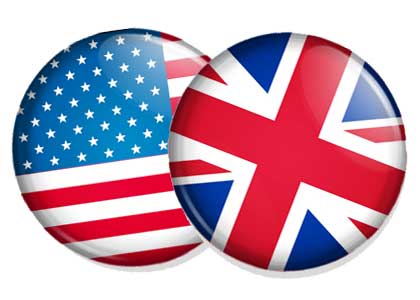Let me first commend another year of generally high-quality songs and the theme of show - "Light your Fire" to tie in with Azerbaijan's nickname of the 'Land of Fire' - dominated by bright orange and yellow colours. The stage was modern and well designed, resembling a piece of abstract art, and had two 'arms' extending into the audience area.
However, the show was let down by the lack of charisma and personality of the presenters, who seemed to take long unnatural pauses in between sentences. The show is naturally scripted, but last year's hosts in Germany were picked for being popular with their home audience and partial to some improvisation.
 |
| The stage at Eurovision 2012 in Baku |
Is it really about politics?
There are large numbers of people, mainly those who don't watch it, who dismiss the Eurovision Song Contest as being a popularity contest and a matter of neighbour voting. But recent years have proven it is not as black and white as this. The UK's string of bad luck commenced in 2003 when we scored nul points for the first time ever. This was the same year as the war in Iraq commenced, but the song was atrocious. It was a monotonous pop song with little variation in the tune and sung off key.
Our luck picked up in 2009 when we came 5th with a song written by Andrew Lloyd Webber, followed by last place again in 2010 with another monotonous pop song with little variation in the tune, predictable lyrics and sung by nobody we had ever heard of. Then last year, we came a respectable 10th with Blue in a contemporary song that sounded like it could have been lifted straight out of the charts. So, can you see a relationship between the quality of the song and our final position?
Neighbour voting does exist of course. But this could easily be explained by the fact that neighbouring countries share similar cultures and languages. Greek/Cyprus, Scandinavia, Italy/Spain/France, Austria/Germany and so on...
Nevertheless, some neighbour voting is simply down to politics and alliances when one country sends a song sung in English, completely unrelated to its culture, and receives 12 points from next door, and this especially happened this year, following a few years of absence.
The winners and losers
Sweden won with a contemporary club song. It was a very good song, beautifully sung, had interesting choreography and was very Eurovision, but there are a few problems with this. These kinds of song don't normally win. Moreover, this song was hyped up so much beforehand. All Eurovision media outlets were continuously reminding us that this song was the favourite, without telling us why. Now, if you plant the idea in someone's head that a certain song is the favourite, they're going to vote for it. So, thank you for psychologically fixing the contest this year. Then again, it could have been fixed more directly with intervention in the votes. In any case, it was very convenient that the country that won was one of the very few that can afford to host it next year.
 |
| Party for Everybody by Russian Grannies |
The remaining top 10 places were taken by deserving ballads, with non-English songs doing particularly well this year. Often at the bottom of the table, Spain especially did well in 10th place and has continually stuck to its guns by singing in Spanish and not deviating from its cultural roots, although the entrant Pastora Soler was allegedly asked not to win by her country to avoid the bill for next year.
Conversely, cheesy pop songs did badly, which is fine. Sadly, Engelbert Humperdinck for the UK came 25th out of 26. A true gent with a gentle ballad should have ended up towards the middle of the rankings, but as the first to perform, his song was simply too unmemorable.
 |
| Yes, Jedward were in it again |
As a fan of upbeat pop music in this contest (amongst more tasteful music), I had high hopes for France. However, her voice was too shaky on the night and slightly deeper for some reason, which didn't match the pitch of the melody. My ambitions turned to Italy for a jazz-pop song by a singer resembling Amy Winehouse in appearance and style, who came 9th.
Will I watch it next year?
Of course. Politics and voting aside, it's a good night of entertainment that produces at least half a dozen songs worthy of the iPod. As the show returns to Sweden next year, who won it the first time I watched Eurovision back in 1999, I think we can trust the reliable Swedes to put on a good show. I have always wanted to be there in person so perhaps that will be the year.
























